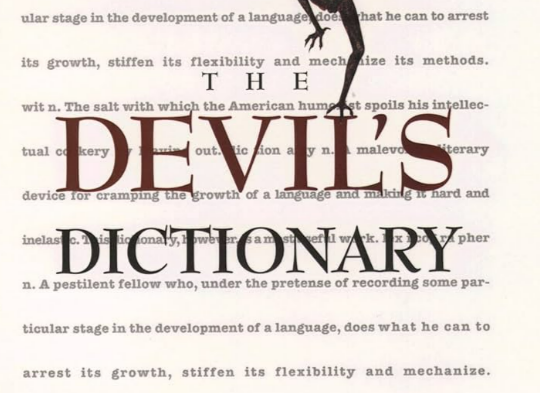Chapter H
byChapter H begins with Bierce’s wry dissection of Habeas Corpus, presented as a formal process used to release the unjustly imprisoned, yet underscored by the irony that one often needs extraordinary effort to restore basic liberty. While legally noble, the phrase is portrayed as a bandage over a flawed system—where justice exists more on paper than in practice. Bierce’s satire implies that while the law offers pathways to freedom, it also permits the existence of cages that shouldn’t be there in the first place. His commentary urges readers to view legal remedies not only as protections but also as evidence of deeper structural issues.
Habit is defined with piercing simplicity—as a restriction disguised as routine. Bierce sees habits not as tools of order but as quiet jailers, turning free people into creatures of repetition. By labeling habit a “shackle,” he reveals how seemingly harmless patterns subtly limit thought and change. His perspective reframes discipline as inertia, prompting reflection on how many choices are truly made by will versus custom. Through this, Bierce critiques society’s veneration of routine and stability, exposing how comfort can become constraint.
When approaching mythology, Bierce offers Hades not as the fiery Hell of modern imagery, but as a mischaracterized resting place of notable souls from the past. He blames translation and reinterpretation for distorting its meaning, suggesting that cultural narratives evolve based more on power and ideology than accuracy. This revisionist lens reveals how history and religion are frequently reshaped to serve contemporary beliefs. His critique of Hades becomes a critique of all inherited truths—reminding readers that every “fact” is filtered through time and agenda.
The term Hag shifts the focus to gender and age, exposing how language has historically vilified women beyond their youth. Bierce implies that what was once a neutral or even respectful term became steeped in negativity through social prejudice. The hag becomes a symbol of how society punishes age and independence in women. By redefining the word through historical context, Bierce unearths the misogyny embedded in common speech. His entry urges scrutiny not just of language, but of the attitudes language preserves.
With Happiness, Bierce blends bitterness and humor by defining it as the feeling one gets from others’ misfortunes. This cynical twist challenges the idealistic view of happiness as pure and altruistic. Instead, he reveals the darker satisfaction often found in comparison and schadenfreude. The entry underscores how human joy can be tied to superiority or relief that suffering passed over oneself. Bierce doesn’t condemn the emotion, but he strips it of its moral pedestal.
Hand, a seemingly benign body part, becomes a metaphor for manipulation. Rather than simply aiding others, hands are tools for grasping—used as much for control as for cooperation. Bierce’s commentary exposes how gestures of kindness are often rooted in self-interest. A handshake becomes not a symbol of trust, but a transaction. Through minimal words, he transforms anatomy into commentary, inviting readers to question the motives behind even the smallest interactions.
In Hatred, Bierce explores the emotion as an echo of inferiority—a feeling born when someone sees in another the traits they resent in themselves or lack entirely. He presents it not as a moral failing but as a psychological mirror. Similarly, Honor is reimagined as society’s applause for those who conform with flair. Rather than a measure of integrity, honor is portrayed as a performance, awarded when actions fit a narrow mold. Bierce dismantles the romanticism of honor, suggesting it often disguises compliance as courage.
Death-related terms like Hearse and Heaven bring a blend of reverence and mockery. The Hearse, rather than a sacred vehicle, is depicted as a grim reminder that all parades end the same way. Heaven, far from a comforting reward, is imagined with absurd bureaucracy and impossible entry standards. Bierce’s version of the afterlife reflects his skepticism toward promises made about things no one can prove. By wrapping mortality in satire, he forces contemplation on life’s final chapter with laughter that lingers.
As the chapter closes, Bierce continues to redefine reality through paradox and irony. Each term under H reveals how language conceals complexity beneath familiarity. Words become vessels not just for communication, but for illusion. Bierce doesn’t simply ridicule—they reveal how meanings evolve under pressure from culture, power, and fear. Through biting wit, he demands a more conscious use of language, reminding us that every word carries weight—shaped as much by what we believe as by what we avoid admitting.

